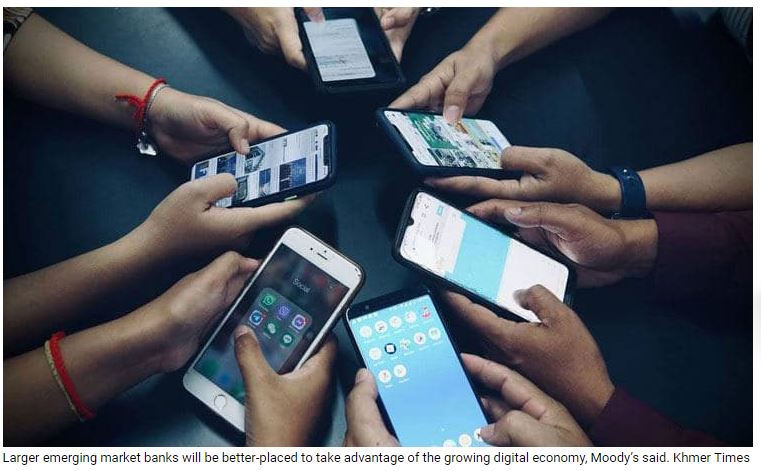Thai banks may lag ASEAN peers as region recovers, Moody’s says
The outlook for banks in emerging markets (EMs) is stable over the next 12 to 18 months, according to Moody’s Investors Service, but lenders in Vietnam and Malaysia are likely to perform better than those in Thailand. The world’s biggest credit ratings company said lenders will be supported by the continued recovery in economic activity and solid balance sheets, which will help them offset short-term risks. “We expect the G20 emerging market economies will continue to present a solid recovery of 4.8 percent in 2022 and 4.3 percent in 2023, on average, with operating conditions reaching pre-pandemic levels in most countries,” said Moody’s Associate Managing Director Ceres Lisboa. “EM banks will maintain loan loss reserve buffers built in 2020 that will mitigate risks of a moderate increase in nonperforming loans, following the expiration of support measures, recent inflationary pressures in the region and the weak job markets in some countries.”
Moody’s said risks to banks include a cooling Chinese economy and the slow pace of vaccination in regions including Southeast-Asia, where many countries have fully vaccinated fewer than two thirds of their populations.
Other downside risks include limited government spending and movement restrictions prompted by further Covid-19 outbreaks which could weaken labour markets, cut consumer spending and loan demand and put a strain on banks’ profitability, Moody’s said.
“Capital outflows from EM markets, owing to global rebalancing of interest rate expectations and a stronger-than-expected US dollar, could create pockets of funding and credit risk in certain dollarized EM banking systems,” it said.
Economic reforms, growing loan demand fed by higher than expected economic activity and deepening financial inclusion, would help EM banks perform better than forecast, Moody’s said.
Challenges to lenders include the growth of e-commerce and the push for greener lending.
“Acceleration of digital transformation will continue to drive competition with largest banks prepared to take advantage of scale and new business opportunities, mitigating the effects of disintermediation of financial services in EM countries,” it said. “With high exposures to carbon-transition risk, EM banks will have to navigate a challenging path between market, regulatory and societal pressure to decarbonize loan books and country level net-zero emission targets that go beyond 2050 in various cases.”
In Southeast-Asia, economic recovery will support the creditworthiness of most banks, Moody’s said, with lenders in Vietnam, Malaysia recovering at a faster pace and those in Thailand taking longer.
Source: https://www.khmertimeskh.com/50979504/thai-banks-may-lag-asean-peers-as-region-recovers-moodys-says/


 English
English




